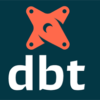Incremental updates allow DBT to process only new or updated records since the last run,…
Category: dbt
DBT : Harnessing DBT Snapshots to Track Historical Data Changes
One of its key features of DBT is the ability to capture historical changes in data over time using snapshots….
DBT Tests: Ensuring Data Quality in Your DBT Project . Write and run custom data tests.
One crucial aspect of data transformation is ensuring that your output data meets certain quality standards. DBT tests are an…
DBT Sources: Streamlining Raw Data Management in Your DBT Project
DBT sources are a powerful feature that helps in managing raw data in your DBT project. They provide a way…
DBT : Managing dependencies between DBT models. Explain the use of the ref() function?
Managing dependencies between DBT models is essential for ensuring the correct order of execution and maintaining data consistency. The ref()…
DBT : Explain the concept of incremental models in DBT. How do they help optimize data transformation pipelines?
Incremental models in DBT are a type of materialization designed to optimize data transformation pipelines, especially for large datasets where…
DBT : Difference between DBT materializations, and how do you choose the right one for a specific use case
Materializations in DBT are a way to define how the output of a model should be stored in the destination…
DBT : Handling incremental updates and historical data in DBT
Incremental updates allow DBT to process only new or updated records since the last run, reducing the time and resources…
DBT : How does DBT handle versioning of data models?
DBT does not inherently include versioning capabilities for data models, but it can be integrated with version control systems like…
DBT : Example on how we can use dbt for automate data testing
Here’s an example of how you can use dbt to automate data testing: Let’s say you have a table in…
DBT : Will getDBT alter the table based on the source table on incremental models ?
When using incremental models in dbt, dbt will update the target table based on changes in the source table, but…








